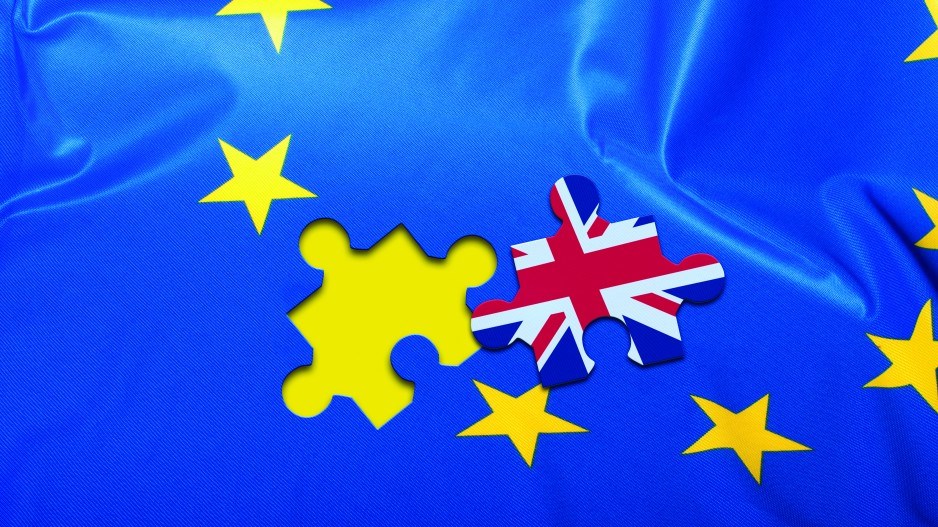But the U.K.’s decision to withdraw from the European Union (EU) has raised concerns that the Comprehensive Economic and Trade Agreement (CETA) between Canada and EU could stall.
Canada’s International Trade Minister Chrystia Freeland last week said she’s confident the deal is on track for ratification by January. But Greg Tereposky, who specializes in international trade and investment law for Borden Ladner Gervais, has doubts about that.
He thinks the deal is too important for both Canada and the EU not to be ratified eventually; he just doesn’t think it can happen by the new year.
“If you really step back and look at this objectively, it’s impossible for them to launch this thing by January 1, 2017,” he said.
John Boscariol, head of McCarthy Tetrault’s international trade and investment law group, is more confident CETA will be ratified by the end of this year.
“I think it is realistic,” he said. “If you look at the announcements that have occurred since Brexit on the EU side, they have been very clear that they want to move ahead with CETA as quickly as possible. And the reason for that is that they want to demonstrate that Brexit doesn’t undermine the ability of the EU to negotiate ground-breaking trade agreements like CETA.”
Because of B.C.’s proximity to Asia, the Trans Pacific Partnership (TPP) has gotten more attention in B.C. than CETA. But that deal is the one that’s in real jeopardy, thanks to American presidential front-runners’ antipathy to it. From the broader Canadian perspective, CETA is more important than TPP, and it’s more comprehensive than the North American Free Trade Agreement (NAFTA).
“This agreement goes well beyond any other agreement we’ve ever signed,” Boscariol said. “In various areas, it’s more aggressive than NAFTA, particularly when you look at government procurement. The Europeans have acknowledged it’s the most advanced trade agreement they‘ve ever negotiated, and it’s a lot closer to the finish line than TPP.”
A joint Canada-EU study estimated CETA’s economic benefits in terms of annual real income gains within seven years of implementation: $12 billion for Canada; $17 billion for Europe.
When Canadians think free trade, they tend to think about increased market share for resources: lumber, fish, metals, minerals and oil. But according to the C.D. Howe Institute, which describes CETA as “NAFTA-plus,” the sector that would get the biggest boost from CETA is commercial services: “architectural, engineering, environmental and other technical services, financial, management, advertising, computer and information, research and development, construction and oil and gas services.”
The agreement opens up all three levels of government procurement – worth $100 billion in Canada alone – to competition.
For example, under CETA, Canadian companies bidding on contracts for the $9 billion Site C dam might have faced more competition from European companies.
“One the one hand, they’re going to have new competition in B.C., but on the other hand it also means that they will now have access to European procurement that they’ve never had before,” Boscariol said.
It will take two years for the U.K. to negotiate its formal withdrawal from the EU. Until then, it will remain a part of the EU, so CETA could be ratified as is. It’s not clear what the U.K.’s withdrawal from the EU would mean for CETA post-withdrawal, however.
As Tereposky points out, the U.K. is not only a significant part of the EU market, it was also one of CETA’s biggest champions.
“The U.K.’s no longer there to be the big flag waver to get this thing to go through the ratification process,” he said.
Attempts to fast-track ratification failed last week, which means the deal must be ratified by a vote of all 28 EU legislatures. But European and British bureaucrats are going to have their hands full negotiating a messy divorce.
“The U.K. is going to have to basically renegotiate a huge number of agreements,” Tereposky said. “It’s going to completely overload their system. We’ve got this dynamic where both the EU and the U.K. have a huge list of things they have to deal with. Trade agreements, I’m sure, are somewhere on the bottom.”
In any trade deal there is a balance of concessions, Tereposky said, in which one trading partner agrees to reduce or eliminate tariffs on one protected industry in order to give some other sector greater market access.
The U.K. represents 18% of the European market. If it is not part of CETA, Tereposky said it raises concerns that the balance of concessions that have been agreed to could become unbalanced.
“If you look at the trade flows from Canada into the EU, a huge percentage of it goes through the U.K.. So the U.K.’s a big piece of the EU from the Canadian perspective. You pull the U.K. out of the EU and that balance of concessions – does that still stand?”
So far, U.K. leaders – what’s left of them – have not said much about ratifying CETA. Boscariol said CETA could be ratified and implemented, even if there are some holdouts among the 28 members. As for the U.K.’s withdrawal from the EU, Boscariol said the implication for CETA is that the U.K. will simply have to do some bilateral negotiations with Canada. “It means that the U.K. has to negotiate a separate deal with Canada.”




